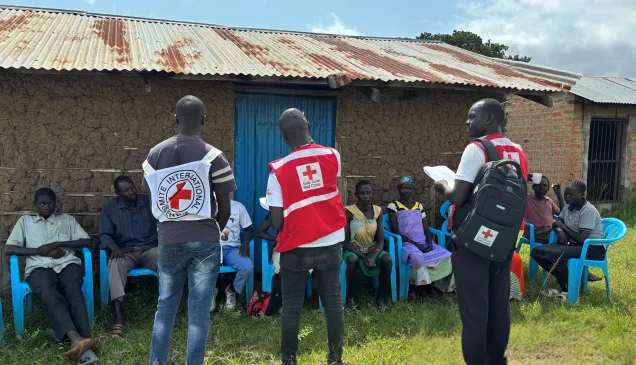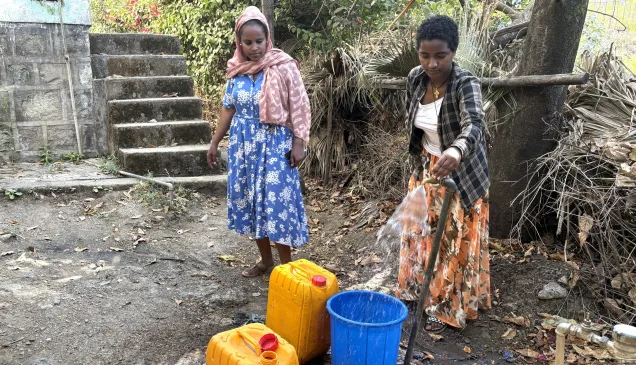Ethiopia: Surgeons trained to save weapon-wounded people’s lives in Amhara and Oromia
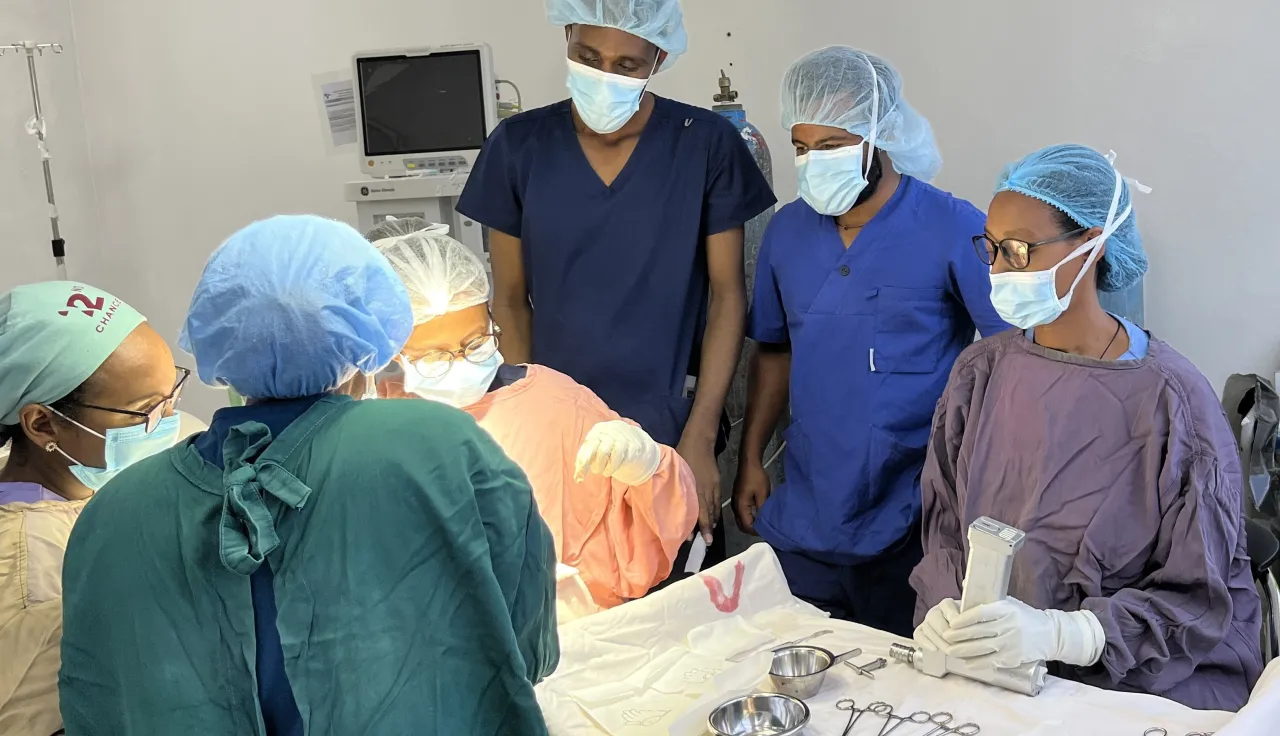
Many people are injured due to the armed conflicts between Ethiopia’s security forces and non-state armed groups in the Amhara and Oromia regions. A gap in certain surgical specialties and a shortage of medical supplies endanger the lives of these patients, who are often severely wounded by bullets or other weapons.
To help improve surgical care and save lives, the ICRC has set up a training program for surgeons from the two conflict-affected regions on trauma and reconstructive surgery, in partnership with the Alert Comprehensive Specialized Hospital in Addis Ababa. Six hospitals receiving weapon-wounded casualties in Amhara and Oromia were identified to benefit from the training. The ICRC also supports the facilities and the Alert hospital with medical equipment and consumables for emergency surgeries, on an ad hoc basis.
In April and May 2025, two rounds of the two-week training were conducted in the Alert hospital. The first one with three surgeons from the Adola, Mendi, and Shambu General Hospitals in Oromia, and the second one with three other specialists from hospitals in Amhara, namely Debark, Fenoteselam, and Woldiya.
We talked with two of the six surgeons, one from each region. They told us about the situation and their work in their respective conflict-affected area.
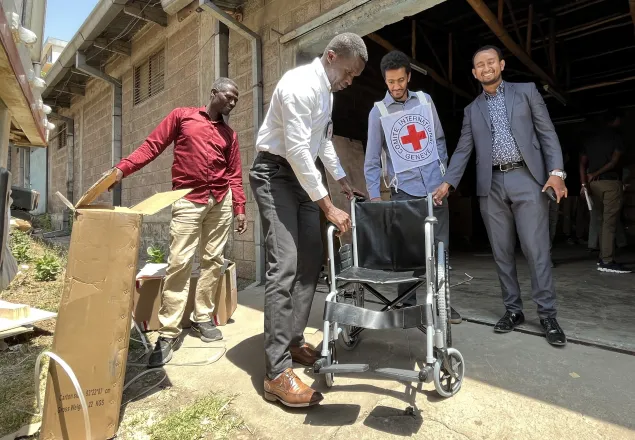
ICRC medical donation to Alert specialized Comprehensive Hospital.
Dr. Fikadu, general surgeon at Shambu General Hospital, Horo Guduru Wellega, Oromia
“Our zone is a war zone, and on top of that, there are trauma cases from road traffic accidents and the like. The needs are massive. The two primary hospitals in the zone are only functioning partially, because of the security situation – one of them almost not at all. So, a lot depends on the Shambu General Hospital, where casualties are referred to. We are receiving weapon-wounded patients every day. Sometimes, mass casualties are brought to the hospital, especially after clashes involving militias or other groups.
We are facing a variety of trauma patients, from mild to severe cases. We divide them into three categories. The minor cases, we can treat and discharge quickly. This is the largest group. Then we have patients with moderate injuries, which we admit and treat. Most will be fine, although some must be referred to Nekemte hospital, about 150 kilometers from Shambu. Finally, a few patients need specific care at higher institutions, like plastic surgery, reconstructive surgery. So, one patient may need a general surgeon, as well as a plastic surgeon, as well as a neurosurgeon. Those patients are referred to Addis Ababa, 320 kilometers away.”
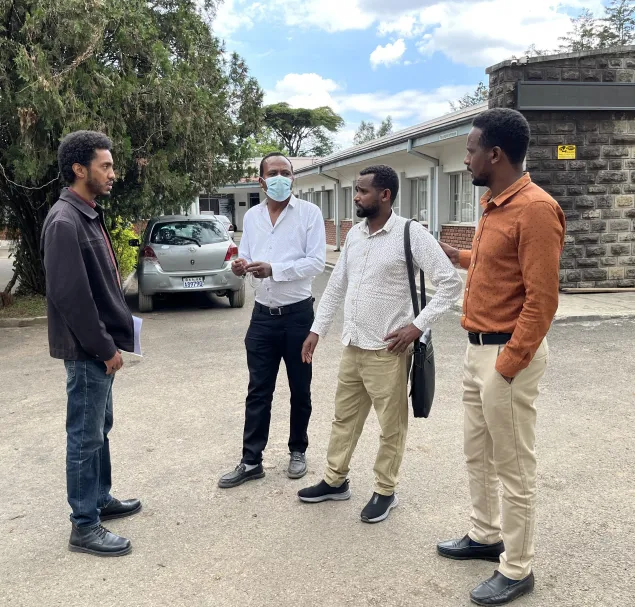
Doctors attending the training in brief discussion with ICRC representative.
Dr. Seifyared Abebaw, general surgeon at Debark General Hospital, North Gondar, Amhara
“Our hospital covers a catchment area of about 1.2 million people. Wounded patients come from many districts. In addition to the numerous road traffic accidents, injuries can be due to bullet, stab, stick, stone... Debark has been affected by armed conflict for the past four years: first the conflict in the north and now the conflict in the Amhara region. So, we are frequently treating conflict-related casualties, and a few are operated each month with major surgeries, with multiple traumas.
We treat the patients according to our resources and to the severity of their wounds. When the needs surpass our emergency team’s capacity, we stop all other activities to prioritize the ‘red’ cases, meaning the most severe ones. Our primary objective is treating lifesaving emergencies. More aesthetic functionalities, or deformity-related, come later, depending on our resources. In the past six months, we had up to five deaths of conflict-related patients at our hospital. It could have been less with more materials and surgical expertise.”
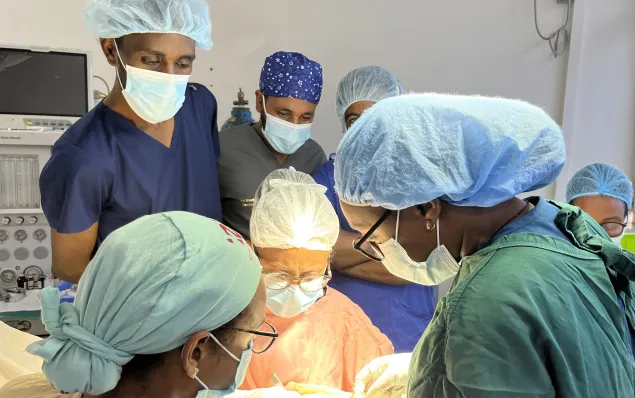
Doctors attending the practical training session in Alert Hospital OR.
Turning the surgical training into practice
Asked about what value this training adds to his surgical care skills, Dr. Seifyared said: “In a few days, we are exploring and experiencing a lot of useful things. Not only lifesaving operations. Also, taking the right surgical decisions to ensure a better life for the patient once he or she recovers. We understand that ‘minor injuries’ may not really be minor. For example, we didn’t pay enough attention to hand and finger injuries, or face injuries. The training helps me to be more aware of the functionality and future of each patient.”
On the same question, Dr. Fikadua, the surgeon from Shambu hospital in Oromia, added:
A communication channel between the Alert hospital trainers and the trainees will aim to monitor and evaluate the outcomes of the trainings. The surgeons’ practical application of the newly learned skills will be particularly vital.


